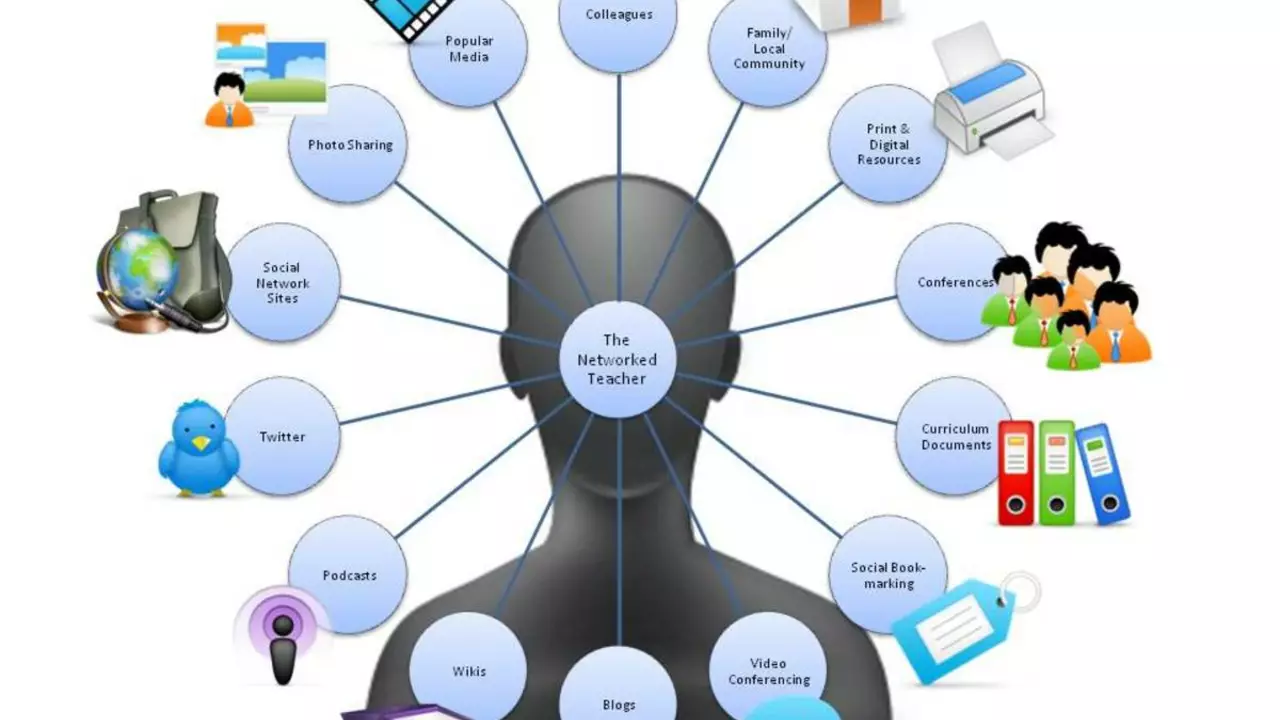Unleashing Creative Intelligence: The Intersection of Technology and Education
As a blogger, I've borne witness to a dramatic integration of technology and education. I ask you to ponder with me, "What role should technology play in school?" That's akin to asking if water should blend with tea! Indeed, the classroom has transformed into a digital landscape teeming with opportunities for creative thinking, boundless learning, and innovation.
Remember your school days? Discipline was strict; teachers were always right, and libraries were analogous to a 'Treasure Island.' Fast forward to today's scenario, students not only have Google teacher but also a host of educational apps. Information is literally at hand, and the learning scope has extended even beyond classroom borders! Even my dear wife, Ivy, an educationist these days, marvels at the speed of knowledge transfer happening.
A New Perspective on Learning: Technology as an Enabler
Right off the bat, let's understand: Technology should not replace the human touch and effect in education. Instead, it should serve as an enabler. I want to emphasize the term 'enabler'. Integrating tech into classrooms shouldn't equate to substituting teachers with robots or educational videos. Instead, it implies enhancing the overall educational efficiency, bringing in interactivity, and adding that element of fun, which can keep the learning enthusiasm alive.
From my perspective, Ivy was not just entertained but enlightened when she utilized online educational resources for her classroom, exemplifying technology's potential in education. When personal experiences are backed by studies affirming that technology makes learning more engaging, one cannot help but consider its crucial role in education.
Breaking the Monotony: Technology Breaths Fresh Air into Classrooms
Clasping this idea, we dive deeper into the realities of tangible experiences —technology and education fusion. I'd wager anyone who has experienced the droning monologue of a single educator throughout a class will readily agree that a switch to interactive learning could work wonders.
Interactive learning not only significantly reduces the monotony but facilitates better comprehension for distinct learning styles—making education inclusive. Additionally, it cultivates a liking towards subjects typically deemed difficult or dull. No, I am not saying that playing Star Wars in a physics class will make every student the next Einstein—just that immersive technologies can dissolve the aversion and dread around certain subjects!
Unraveling Learning Potentials: When Tech Meets EdTech
Lightning-fast internet and swift technological advancements have joined forces, equipping the knowledge-seekers with a whole new league of learning: EdTech. The digital learning tools, virtual learning environments, and other tech-enabled platforms provide students personalized learning, empowering them to learn at their pace.
What strikes me as most remarkable about EdTech is its potential to eliminate geographical and economical barriers. EdTech can make education accessible for remote or disadvantaged students, bringing true transformation. Just think about it, a student sitting in the remotest corner of Perth, Australia, can learn from the world's best professors without moving an inch from his/her home! Isn't it incredible?
Mission Future-Proof: Technology Builds the Leaders of Tomorrow
The capstone statement to this is as follows: Technology in education is not just about making learning fun and accessible—it's a tool to equip future generations with necessary skills. Critical thinking, digital literacy, adaptability, creativity, and collaborative skills are top-tier demands of the rapidly evolving job market. Not the memorized facts!
There's an anecdote I'd like to share from my own life. Years ago, when Ivy and I were just starting dating, she strongly advocated teaching computer programming in schools. I was skeptical, asking, "Isn't this too much for kids?" Today, I see the significance and, needless to add, the prophecy in Ivy's assertion. An early introduction to computer programming doesn't just teach coding—it nourishes logic, reasoning, creativity, and problem-solving skills.'
Therefore, to prepare our children for a future driven by technological advancements, technology should be seamlessly woven into the fabric of education. Yet, as great as the potential of technology in schools might be, we should remember that it serves as a tool to enhance and not to replace traditional learning methods. After all, the goal is not to make technology the focus, but to use technology to sharpen the focus on creating better learners, thinkers, and leaders.
So, my friends, as we surf this unpredictable wave of technological advancements, let us use it thoughtfully and productively for shaping future generations, making learning an exciting voyage of discovery. And let us continue pondering and evolving: "What role should technology play in school?"
